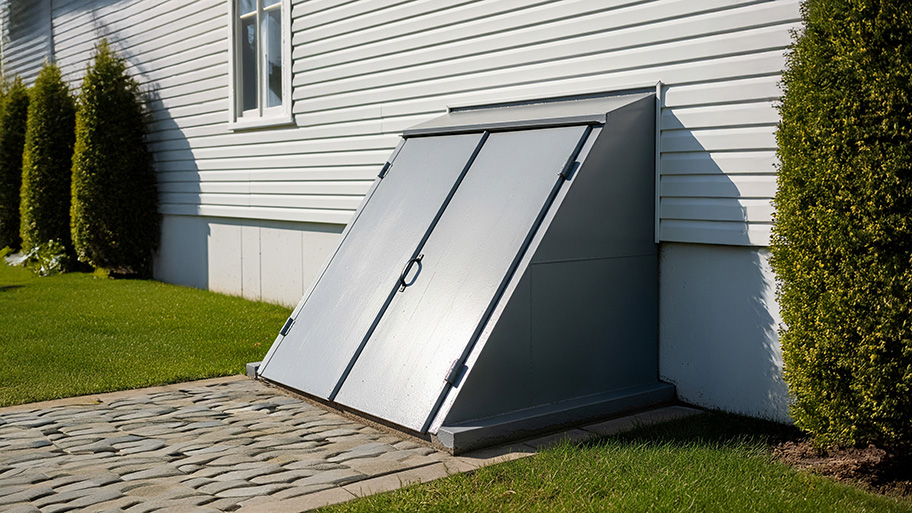
When storm season is approaching, ensure you’re ready to go in case of an emergency. Explore our guide to budgeting for bulkhead replacement costs.
Cash in on that unused storage space


Home Value Rating: 3/5
Adding a basement bedroom yields moderate returns that you can maximize with the help of a pro.
If your basement is unfinished, you’ll need to pay to finish it before the bedroom will add to the value.
You’ll need egress windows and doors before you can consider your basement a legal and safe space for a bedroom.
Short of building a home addition, your basement is the “final frontier” when it comes to adding living space to your home. That begs the question: Does adding a bedroom in the basement add value? The short answer is: probably. Adding a basement bedroom should fetch a 70% return on investment (ROI), but there are a few important things to consider first. Let’s explore basement bedroom ROI and how to figure out if this project is worthwhile.
There are several key factors you’ll want to think about to get an accurate estimate for how much value you’ll add to your home when installing a bedroom in the basement.
Finishing a basement fetches an average ROI of 70%, but the actual return you’ll see will vary widely based on how you set up the space. Adding a kitchenette, a bathroom, and at least one bedroom, and legalizing the space will boost value far more than just installing a bedroom.
| Project | Average Cost |
|---|---|
| Basement bathroom | $12,000 |
| Basement kitchen | $16,000 |
| Egress window | $4,200 |
| Exterior entrance | $20,000 |
| Finishing a basement | $32,000 |
A rentable space provides a much higher potential for ROI, so if you’re adding a bedroom with the intention of finishing the rest of the basement and renting it out, your long-term ROI will almost certainly be above 100%.
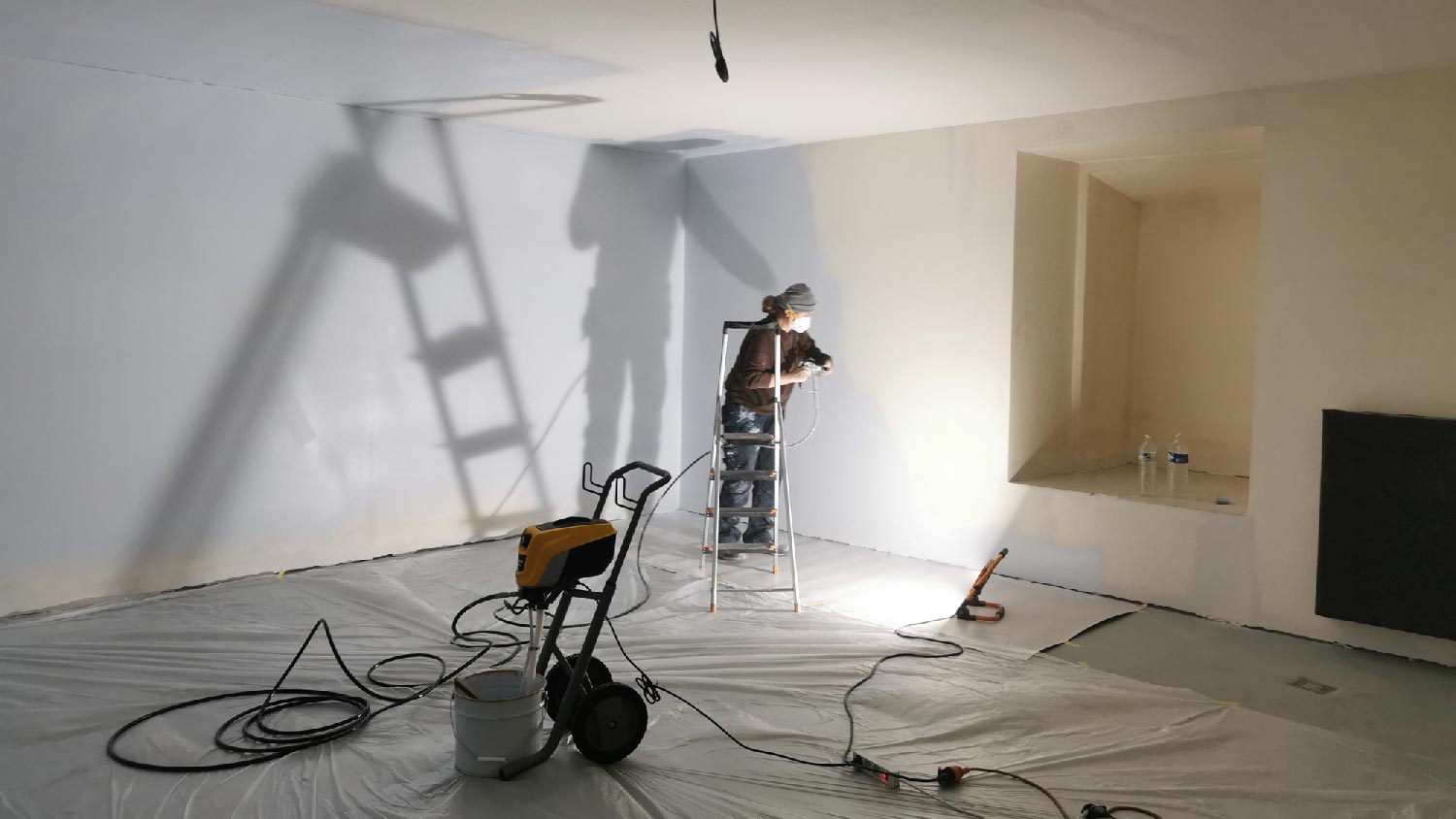
Adding a bedroom in a finished basement will cost far less than converting an unfinished basement to living space, as you’ll just need to create wall partitions and install a door. Adding a bedroom to an unfinished basement will require you to install insulation, wall framing, and flooring, and you’ll at least need to tie in the space to your existing heating system to make it livable.
Starting with an unfinished basement means adding a bedroom will cost much more, and the higher costs will lower the ROI.
Your basement bedroom won’t be considered safe or legal unless you ensure you have the appropriate points of egress, which could mean installing an exterior entrance and window wells. These projects can add tens of thousands to your costs, so you’ll see a much lower ROI. If you start with a legally finished basement, your ROI could be well over 100%.
Buyers looking at your home will either value a basement bedroom based on how much utility it adds for them and their families or on how easy it would be to rent the space. Finishing your basement legally and adding a kitchenette and a bathroom will mean your home is far more valuable to buyers looking to rent out the space. The actual ROI will depend on the buyer and the rental market in your area. If rentals are popular in your area, it may be time to finish your basement if you’re looking to boost value.
Unlike adding a basement kitchen or bathroom, installing a bedroom in the basement is relatively easy to DIY. Provided you have the appropriate windows and heating system integration to make it legal, you can do the rest of the work yourself with some DIY experience, including framing out the walls, installing flooring, hanging drywall, and painting. You’ll need permits to make the conversion legal, but you can tackle all of the actual work yourself.
Installing a basement bedroom in a legalized space will cost an average of $3,000 if you have a pro who finishes basements do the work, and you’ll pay closer to $1,000 to do it yourself, depending on the size of the bedroom. Your ROI will, therefore, be higher if you forgo hiring a pro.
The quality of the materials you choose will play an important role in the cost and the ROI. Going with affordable flooring options like laminate that costs between $3 and $13 per square foot will lead to lower costs and a higher ROI than installing hardwood flooring, stone, or tile that can cost two to three times as much. Light fixtures and other finishes will also determine your upfront cost and the return you’ll see.
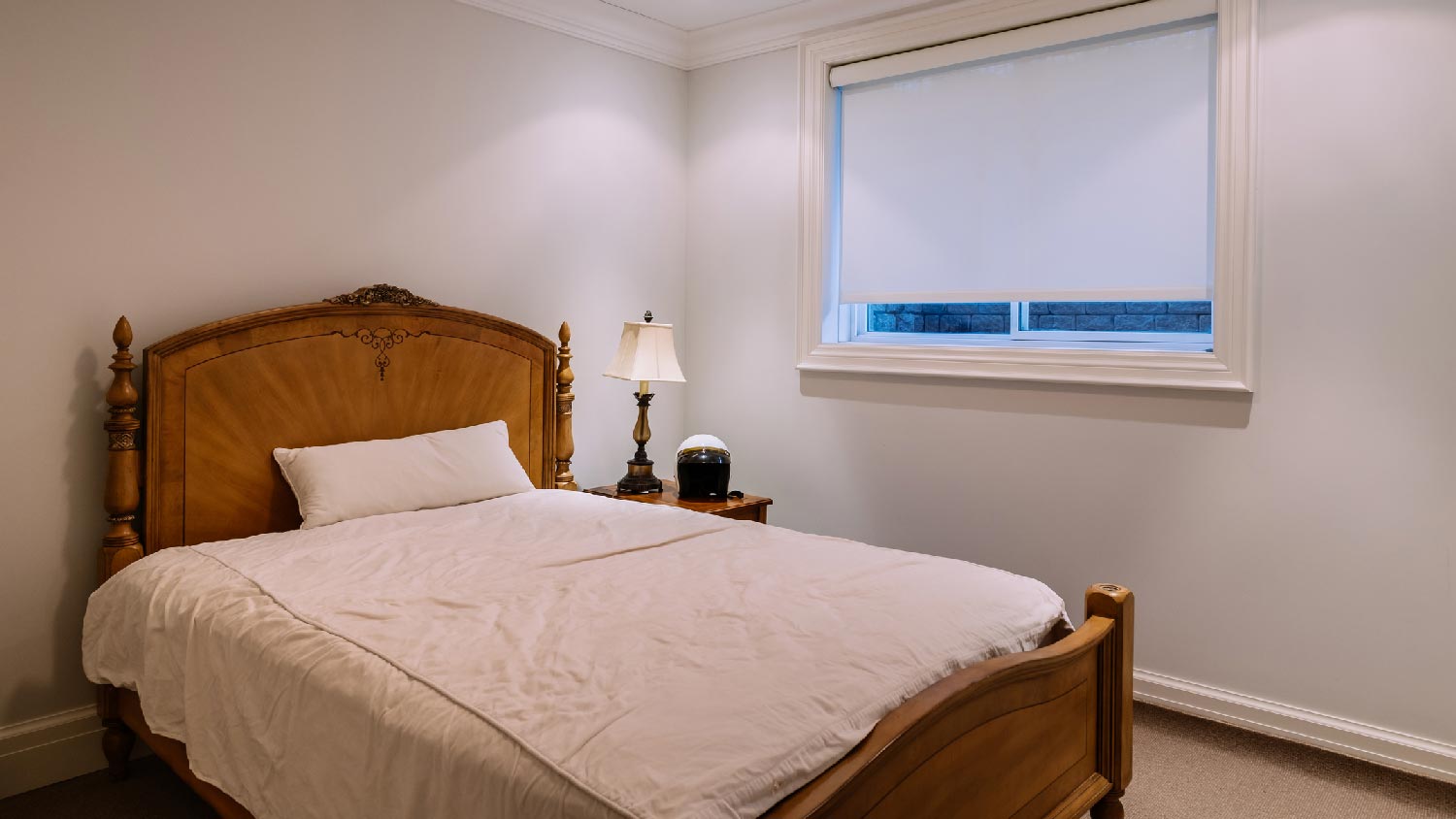
Estimating how much value a basement bedroom adds can be tricky, but there are a few things you can do to help figure out your ROI.
Get accurate estimates for the work required. Start by speaking with a basement finishing company in your area to see what the conversion will cost.
Compare to property values in your area. Check property values in your area based on bedroom count. Gauge the difference an extra bedroom will make in your home.
Consider monthly rental potential. If you’re planning on renting your basement space, look at local rental values to see how much you could earn per month. This can allow you to make your money back quickly.
Speak with a local real estate agent. When in doubt, speak with a local real estate agent about the value the room will add and how much you could expect in monthly rent to offset the cost.
Finishing a basement costs an average of $32,000, and most homeowners pay between $15,000 and $75,000 depending on the size of the basement, the quality of materials, and the condition the space is currently in. In a basement that’s already finished, installing a bedroom will cost an average of $3,000 if you hire a pro.
Adding a bedroom could be worthwhile if you need some extra space for your family, but make sure your basement is equipped with the appropriate points of egress to keep everyone safe. Installing a basement bedroom is far more affordable than the cost of building a home addition, so for the sake of utility alone, installing a basement bedroom is worth it.
If you plan on renting your basement, you’ll likely recuperate the costs and then some through the rental income, so, again, it’s probably worthwhile.
AJ did a good job with my main floor bath remodel and also basement remodel and finishing. He communicates well and takes care of your needs. He is very respectful and flexible in his approach with home owners.
A very good company to work with: professional, reasonably priced, and willing to go above and beyond to satisfy the customer. We had rotted wood and new aluminum roof trim installed, and the result is perfect and done on time. I definitely recommend them and will certainly use them for...
The service was excellent! Norwin's trap caught the dangerous bob cat in short order. I am very thankful!
Wayne and his son replaced a 4x8 piece of tempered glass in our sun room , the whole job from start to finish was truly fantastic and very professional !! Highly recommended !! Thank you !!
Brandon Burnette did such a great job. I'm so happy I had him as my worker today. Very nice and friendly young man. 10 star in my book.
We had LHR install a new roof and gutter system. While they were not the cheapest, they were considered the most reliable and fetish for using only high-value products that would last for many years. Additionally, they were highly professional and never tried to push their services or any...
Syed and his team and Stellar Remodels are an amazing team! From the initial consultation and walk-through, to the first day of remodeling, to the finished product, everything was a great experience. We had our unfinished basement completed and also we wanted to raise our sunken living...
They installed an outdoor cinema in my backyard and did an excellent job! Everything is well-organized!
I highly recommend Virginia Kitchen & Bath. I hired them to do a complete remodel of our full bathroom in our basement. This was the first major remodel project that I had done, and I could not have been more pleased. The process from start to finish was easy and hassle free. Once the...
Got our basement remodeled. Everything was great. Always on time and very professional. Loved the outcome so much that we asked them to come back and create a mantle for our fireplace. Beautiful work.
From average costs to expert advice, get all the answers you need to get your job done.

When storm season is approaching, ensure you’re ready to go in case of an emergency. Explore our guide to budgeting for bulkhead replacement costs.
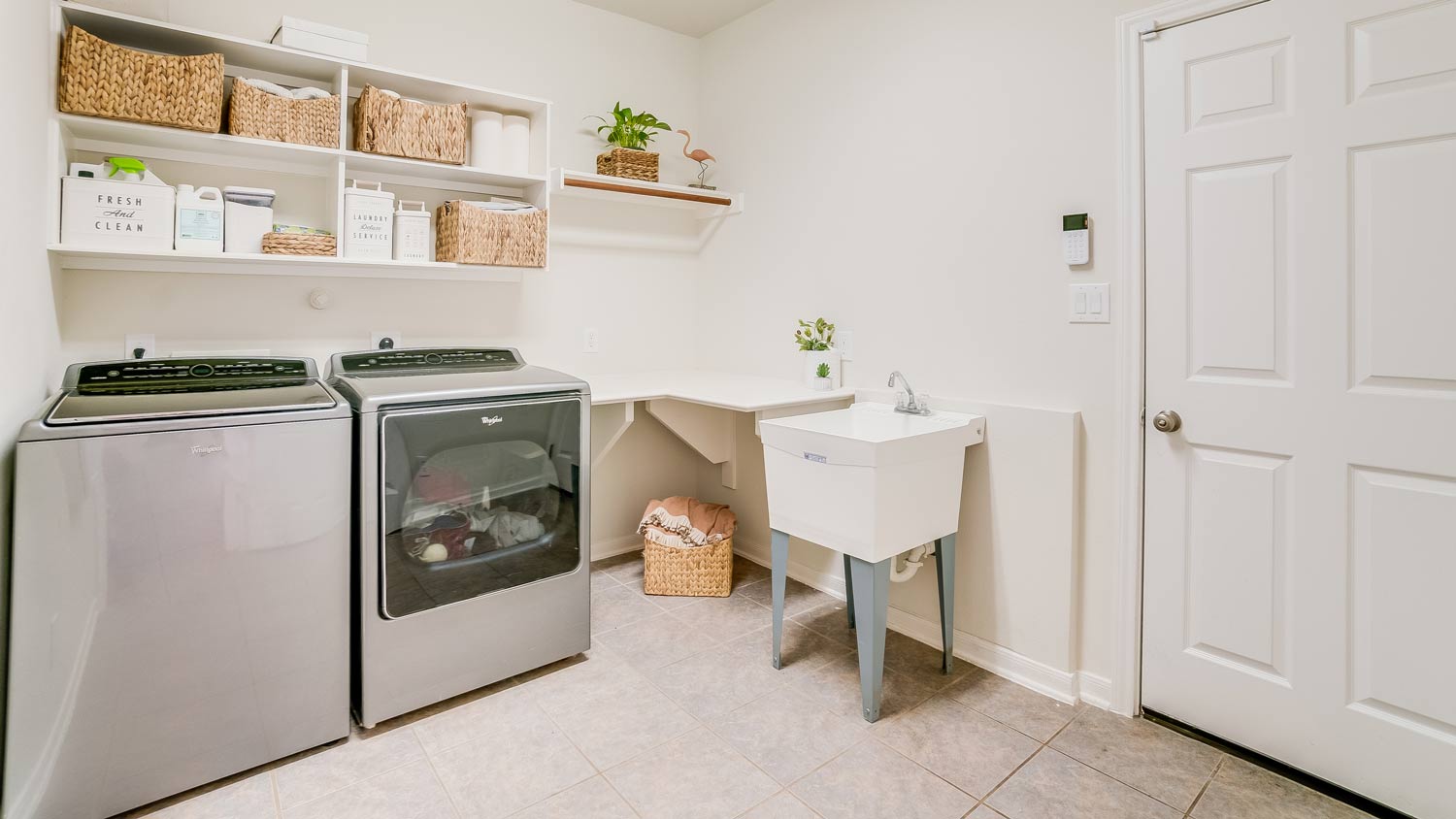
Discover the cost to finish a basement laundry room. Learn about average prices, key cost factors, and tips to budget your basement laundry remodel.
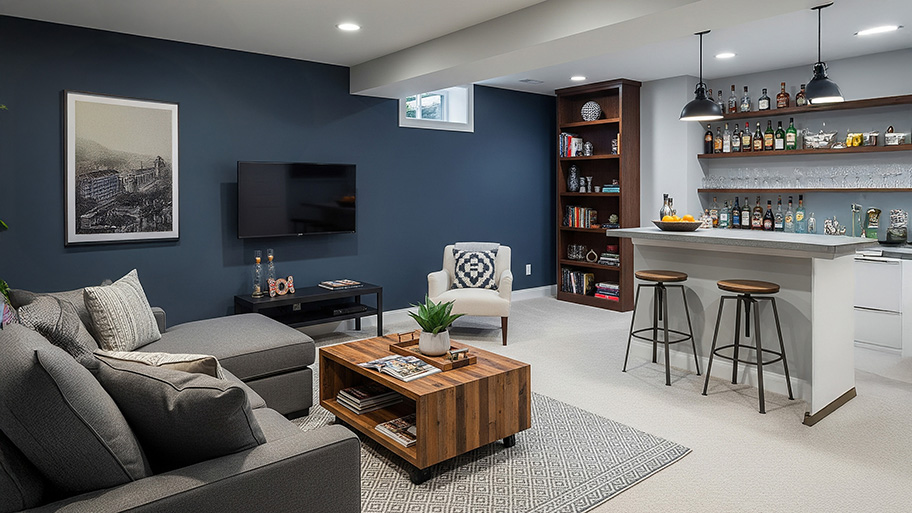
The first step toward a cozy finished basement is adding its framing. How much does it cost to frame a basement? Let's break down the numbers.

Thinking of refinishing your basement and looking for basement remodel ideas? Check out 25 ways to transform your subterranean space.

Thinking of finishing your basement? Before you do, learn about when permits are required and what happens if you don’t get one before beginning construction.

Transforming your basement into the game room of the year? Here's what to know about finished basement code requirements before you get started.